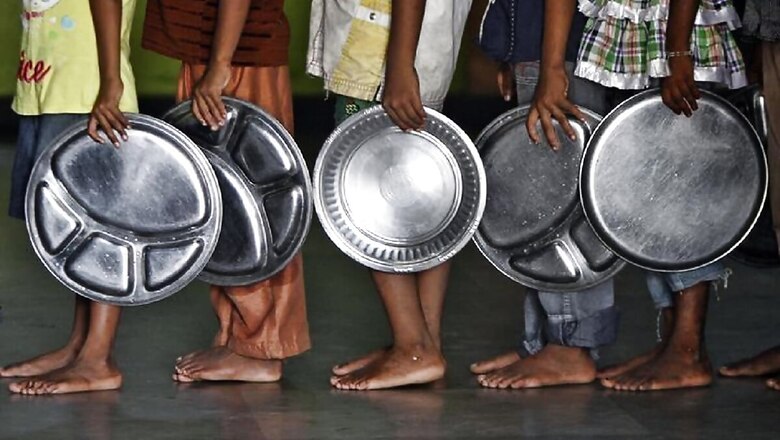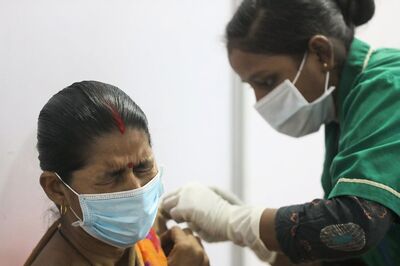
views
A first-of-its-kind survey on hunger has found that the period of Covid-19 and the restrictions placed because of it has hit Dalits and Muslims much harder than the rest of the population.
The report also noted that the three farm acts, against which farmers have been protesting for the past fortnight, endanger the entire procurement mechanism, and hence, the PDS itself, which has been one of the few safety mechanisms for the marginalised during this tough period. In other words, the three farm laws are likely to exacerbate the worsening hunger situation in the country.
One in four Dalits and one in four Muslims reported facing discrimination in accessing food since the lockdown, a report compiled by the Hunger Watch, a collective of the ‘Right to Food’ campaign and allied organisations, found in its post-Covid hunger survey. One in ten people from the ‘general’ category reported facing discrimination in accessing food.
The study also found that nearly 45 per cent people from these 11 states were so affected financially that they had to borrow money to eat. This was an increase from pre-lockdown levels. “The need to borrow money among Dalits was 23 percentage points more than those in the ‘General’ category’,” the report noted.
‘Hunger Watch’ also found that the quantity of food consumption decreased for about 74 per cent of the Dalits.
The survey also found that till as late as in September-October this year, one in four respondents, from the 11 states in which the survey was conducted, ‘often went to bed without eating’.
About 56 per cent of the respondents never had to skip meals before lockdown. Of them, one in seven had to either skip meals ‘often’ or ‘sometimes’ in the September-October period.
The report was compiled on the basis of the feedback received from nearly 4000 respondents, from vulnerable and marginalised communities, from Uttar Pradesh, Madhya Pradesh, Gujarat, Rajasthan, Maharashtra, Chhattisgarh, Jharkhand, Delhi, Telangana, Tamil Nadu and West Bengal.
For ‘Hunger Watch: Situation of Hunger and Food Security in Post-Covid Times’ the respondents’ situation in pre-lockdown (April-May) was compared to their post-lockdown situation in September-October.
Of these respondents, 43 per cent reported no income for the months of April-May and the incomes of only 3 per cent had gone back to the pre-lockdown levels.
On an average, the report found that, the quantity of food consumed by the people in these 11 states had decreased by 66 per cent. Sharpest decrease in quantity of food consumed was found in Jharkhand (82 per cent) followed by Delhi (81 per cent) and Rajasthan (80 per cent). Over two-third of the respondents said that their nutritional quality had worsened by as much as 90 per cent (Chhattisgarh) in some places.
The report noted that “the four labour codes disempower the informal sector workers and make their access to wage employment even more precarious thereby affecting their ability to buy food. The three farm Acts, as is being argued by the farmers’ movements, endanger the entire procurement mechanism and hence the PDS itself.”
Hunger Watch in its report recommended setting up a universal public distribution system that provides every individual with 10 kg grain, 1.5 kg pulses and 800 gm cooking oil for at least the next six months up to June next year and 200 days of employment per household under the National Rural Employment Guarantee Act (NREGA), among other measures.
Read all the Latest News, Breaking News and Coronavirus News here




















Comments
0 comment